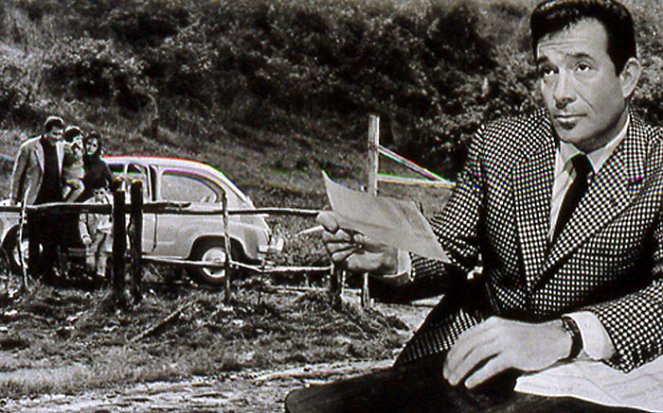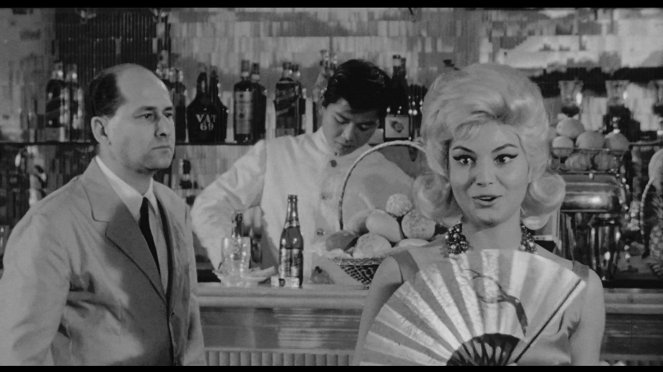Plots(1)
Conceived by the Italian producer Alfredo Bini, the multi-director portmanteau film Let’s Wash Our Brains: RoGoPaG brought together four esteemed European directors to contribute comic episodes reflective of the swinging post-“boom” era. The resulting omnibus collectively examines social anxieties around sex, nuclear war, religion, urbanisation - and the promise of a modern cinema. Roberto Rossellini’s Illibatezza (Virginity) follows an airline stewardess plagued by an obsessed American tourist whose 8mm camera enables the indulgence of a personal, and solipsistic, vision of the Ideal. Jean-Luc Godard’s Il nuovo mondo (The New World) takes place in an Italian-dubbed Paris beset by nuclear fallout, and wittily chronicles the changes that take place in the lives - and medicine cabinet - of a handsome young couple. Pier Paolo Pasolini’s scandalous La ricotta (Ricotta, as in the curded cheese) presents the goings-on around a film shoot devoted to the Crucifixion and presided over by none other than Orson Welles (playing a kind of stand-in for Pasolini himself); it is this episode that landed Pasolini with a suspended four-month prison sentence. Lastly, Ugo Gregoretti’s Il pollo ruspante (Free-Range Chicken) depicts a middle-class Milanese family flirting with the purchase of real-estate and engaging catastrophically with an antagonistic consumerist infrastructure. Let’s Wash Our Brains: RoGoPaG remains one of the definitive entries of the Sixties vogue for the multi-auteur anthology film. (Eureka Entertainment)
(more)Videos (1)
Reviews (1)
This anthology film, which essentially lacks anything binding it together, is a collaboration among directors of different schools, generations, nationalities, and themes. Consequently, it's uneven, with Pasolini's tale set within a film crew representing the absolute peak for me - a masterful analysis of human selfishness and ruthlessness. I was also struck by the overlooked Gregoretti with his dark satire on consumer society, based on well-observed situations and absurdities brought by a modern prosperous society. Rossellini's story is weaker, resembling a more elongated filmed anecdote, and Godard's treatment of an otherwise interesting theme did not resonate with me either. Overall impression: 70%.
()
Gallery (2)
Photo © Cinerez


